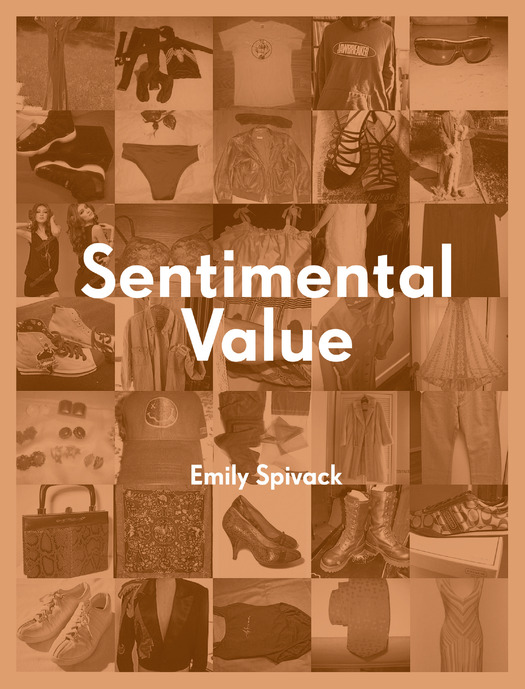
Emily Spivack's Sentimental Value project, collecting unexpectedly compelling stories from eBay listings, leaps from the web to the Philadelphia Art Alliance, starting May 17. An installation version of Sentimental Value, displaying objects Spivack has acquired from eBay auctions as part of the project, will be on view through August 18, 2013. My contribution to the show's catalog follows. More details about the exhibition are here.
“The point is actually in pointing,” the poet Kenneth Goldsmith observed recently. He was making an argument about how meaningful culture gets made in the 21st century, and in a sense he was suggesting real value is not in making at all, or not in the way we usually think about it. As an example he cited a popular blog whose success has far less to do with any original creativity that goes on there than it does with its editors’ skill at finding and highlighting interesting and perhaps-overlooked creativity elsewhere. This “pointing,” Goldsmith continued, “far outweighs the thing at which they’re pointing. So making has become secondary to pointing.”
I like this idea, but I’d like to point out (as it were) a distinction that helps clarify just what it is that makes Emily Spivack’s Sentimental Value project so effective, and affecting. It’s pretty easy for, let’s say, someone like me to point out the interesting ideas of Kenneth Goldsmith, who recently became the first poet laureate of the Museum of Modern Art, and who was explaining his theory on National Public Radio. I didn’t exactly discover him, in other words: The value of his provocative thinking was obvious and recognized well before I showed up.But when Spivack points to product descriptions on eBay, and reveals them to be funny, or poignant, or otherwise surprisingly meaningful stories and narratives, she’s up to something else altogether. What looked to the rest of us like mere detritus, the marketplace vernacular of a virtual nation trying to hustle a buck from used goods, often with the ALL CAPS gracelessness common to online communication, looked to her something more: Tales of love, of memory, emotion, misadventure, family, fame. Slow down to read certain eBay product descriptions her way, and language that seemed banal becomes witty, moving, heartfelt. A jacket’s description tells a startling tale a neighbor running off to join a nudist colony. An odd T-shirt turns out to be a totem of a notorious political episode. A wedding dress animates an episode that an eBayer “devistated.” A home-made Spider-Man outfit becomes the center of a mall-security drama.
There is a point to be made here about pointing: It’s harder than it looks. Finding these stories must have entailed a staggering amount of time and energy. But perhaps like the shopper willing to endure endless miles of junky flea-market stalls to encounter that one astonishing “find,” Spivack evidently has the patience to read through the weird digital agora of eBay, looking not so much for bargains as for stories worth pointing out.
And of course there is a deeper story that binds all her narrative finds together: one about the mysterious relationship between people and things. We impose narratives upon objects, we extract narratives from them, and we save narratives within them. Spivack could have written a brand-new book exploring that idea in many thousands of original words. But there’s something powerful in telling that story by, instead, pointing; it’s arguably more powerful, in fact, and it certainly isn’t easy to do it well.
It’s a feat, and as Goldsmith argues, one that makes perfect sense now, and maybe always did. “The choices that we make are as expressive of ourselves as any kind of personal narrative we might do about our family or growing up,” as he has put it. “We’ve just never been taught to value those choices.”


Comments [1]
If “making has become secondary to pointing” then pointing is the poetry of art direction and if your lucky the “language that seemed banal becomes witty.” Here Kenneth Goldsmith reads poetry at White House Poetry Night, while pointing @ the Brooklyn bridge.
Thank you Rob, Emily and Kenneth.
05.24.13
05:27